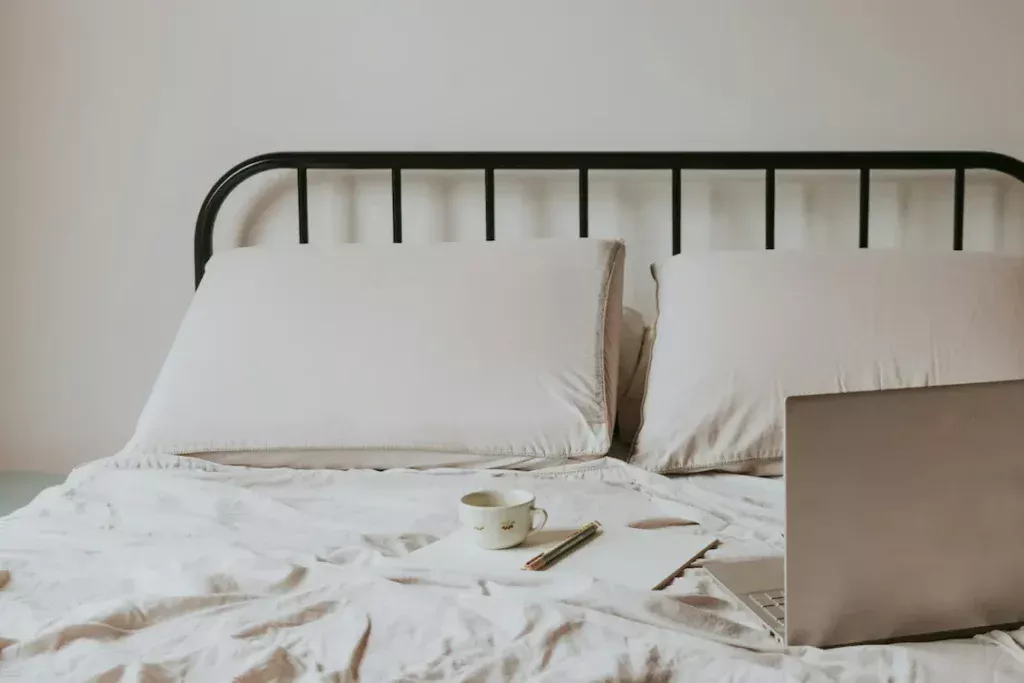You have an empty room or a small vacant studio. More than anything, you need help around the house, such as with DIY, grocery shopping, childcare, or companionship for elderly people. The idea of renting out your room or your home in exchange for help sounds good to you, but you’re not sure if it’s legal or not. We’ll tell you everything you need to know about accommodation in exchange for services.
Definition
Accommodation in exchange for services is a type of shared rental. This allows a property owner to offer all or part of their home to a third party for free. In return, the tenant provides one or more services without charge.
What the law says
In France, it is legal but poorly regulated, so you must be vigilant and clear in your ad. Your ad will even determine your status. So, you will either be considered an “employer for an au pair” or a “host family“. This affects the hiring procedures, social security contributions and even your salary.
If you are an “employer for an au pair”, the person you are hosting is considered a “paid au pair“. They are subject to the same rules as any other private employer. If you are a “host family”, the person you are hosting is regarded as a friend or relative who helps out occasionally or on an informal basis.
To go further…
French law says that anyone who owns or rents a property can host one or more people for free. This person can choose who they want to stay with them, as long as that person doesn’t pay rent.
The person hosting them can end the agreement at any time, without having to follow any formal procedure.
This service must be completely free; even a small rent payment would require a lease agreement.
It is usually a good idea to write a contract to make clear the terms of the agreement between you and the guest.
What should the contract include ?
If you employ an au pair, no matter how you pay them, you are hosting someone with specific skills. Often with diplomas related to those skills. You should only create one contract : the employment contract. Do not create a lease agreement. Also, make it clear that accommodation is part of the compensation and is an extra part of the employment contract. You should also say that the au pair must leave at the end of the notice period. You will also need to complete a form called “employer declaration for all domestic employment” with Urssaf.
If your employee is an au pair, cross out the options allowing you to choose between the actual or flat-rate contribution basis. Write “au pair” above.
When your employee is a domestic worker, you must choose between an actual or flat-rate contribution basis. This should be negotiated with them.
If you are a host family :
Here, we are not talking about work, but about sharing time. You welcome a person who is travelling or simply looking for a place to stay for a few days or even a few months, and who could help you out. This person should be treated as a member of the family, in the spirit of exchange. To stay within the law and avoid “under the table” work, it is important that the person being hosted only does activities that are not considered paid employment, such as mutual aid or volunteering. The guest is not an employee. They are not paid in cash. They don’t have to provide a service or be under their host’s authority.
This means that they are not covered by any social protection scheme and are not protected in relation to this activity. If they have an accident while they are working, they won’t be able to get daily payments.
They can move around and do what they want and cannot be given orders. They don’t have to do any work and their hours are flexible.
Why do we need a contract ?
However having a “contract” makes it clear what the benefits are for each person. It also clarifies when the exchange of services for accommodation will happen. It is also important to clearly outline the schedule agreed upon by both parties. You should also say what services you will provide and how many hours you will work. If the agreed schedule is exceeded, these extra hours of work could be considered “hidden labour”. In this case, it would be better to have an employment contract, along with the associated payment terms.
Other important information to include is:
- How long the accommodation is provided for
- How the property is to be maintained
- How the housing is to be used
- How you will contribute to utilities and various expenses (excluding rent)
- The house rules if you are sharing your own residence (for example : access to the kitchen, visiting friends, etc.)
If someone is hosted and they offer to do free work in exchange for accommodation, they can only work for twelve hours a week.
However, the person being hosted can work more hours than they initially planned. It will then be the host’s responsibility to pay for these extra hours. They must create an employment contract. Alternatively, with the tenant’s written consent, they may agree on other benefits such as meals, laundry, or access to Wi-Fi.
Don’t forget
If you agree to be hosted for a longer or shorter stay, whether you’re a resident or a traveller, you’re agreeing to trade your time and skills for accommodation and meals. You’re also committing to being a responsible citizen.
In all cases
The tenant or person being hosted for free must present a civil liability guarantee (included in all multi-risk home insurance contracts), just like for a regular rental.
The host must provide decent housing that meets the decency standards set out in the law of 30 January 2002. He must also provide the person being hosted with a certificate from their insurance that covers the hosting of a third party.
Here’s some final advice :
It seems fair and helpful for both the guest and the host to offer a room and meals in exchange for some help. But remember that the person offering help might not have a specific status, like an au pair, home care assistant, or dog trainer. The meeting will show if they are right for each other. Lastly, remember that you will be welcoming someone into your home who will live with you 24/7. Therefore, it’s important to make sure you get along well!
Exchanging accommodation for services is more than just swapping skills and free housing ; it’s a human exchange.







